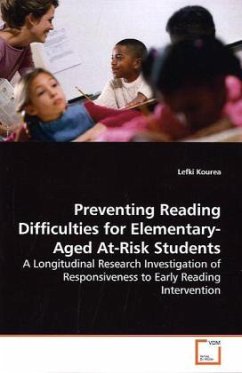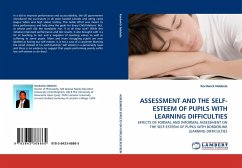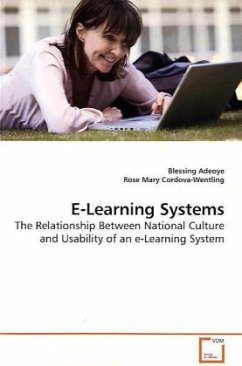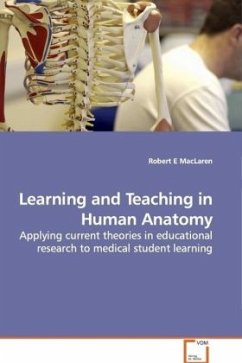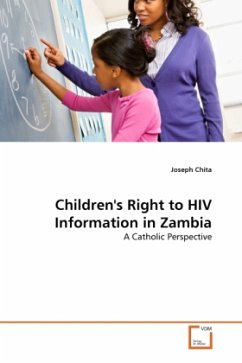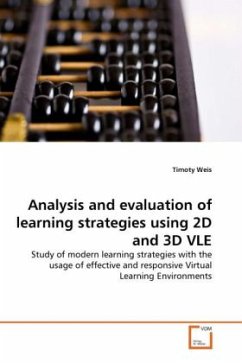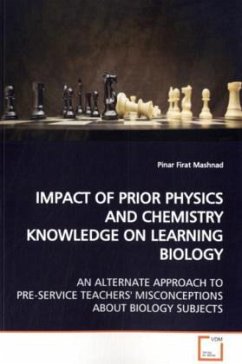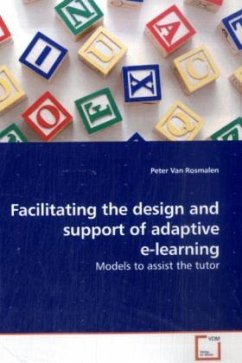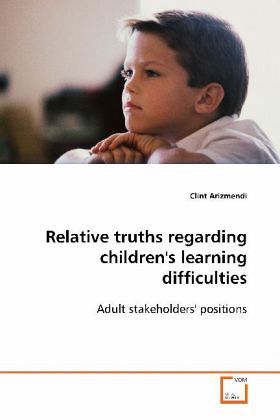
Relative truths regarding children's learning difficulties
Adult stakeholders' positions
Versandkostenfrei!
Versandfertig in 6-10 Tagen
52,99 €
inkl. MwSt.

PAYBACK Punkte
26 °P sammeln!
This study explored the discursive subject positions that 18 parents, teachers and administrators involved with children identified as experiencing learning difficulties in a Queensland regional primary school between September 2003 and August 2004 drew upon to explain the causes of those difficulties. The study used a post-structural adaptation of positioning theory and social constructionism and a discourse analytic method to analyse relevant policy documents and participants'' semi-structured interview transcripts to interrogate what models were being used to explain a student''s inability ...
This study explored the discursive subject positions
that 18 parents, teachers and administrators
involved with children identified as experiencing
learning difficulties in a Queensland regional
primary school between September 2003 and August
2004 drew upon to explain the causes of those
difficulties. The study used a post-structural
adaptation of positioning theory and social
constructionism and a discourse analytic
method to analyse relevant policy documents and
participants'' semi-structured interview transcripts
to interrogate what models were being used to
explain a student''s inability to access the
curriculum. Despite the existence of alternative
explanatory frameworks that functioned as relatively
undeveloped resistant counternarratives, the study
demonstrated the medical model''s overwhelming
dominance in both Education Queensland policy
statements and the participants'' subject positions.
This dominance shapes and informs the adult
stakeholders'' subjectivities and renders the child
docile and potentially irrational.
that 18 parents, teachers and administrators
involved with children identified as experiencing
learning difficulties in a Queensland regional
primary school between September 2003 and August
2004 drew upon to explain the causes of those
difficulties. The study used a post-structural
adaptation of positioning theory and social
constructionism and a discourse analytic
method to analyse relevant policy documents and
participants'' semi-structured interview transcripts
to interrogate what models were being used to
explain a student''s inability to access the
curriculum. Despite the existence of alternative
explanatory frameworks that functioned as relatively
undeveloped resistant counternarratives, the study
demonstrated the medical model''s overwhelming
dominance in both Education Queensland policy
statements and the participants'' subject positions.
This dominance shapes and informs the adult
stakeholders'' subjectivities and renders the child
docile and potentially irrational.



